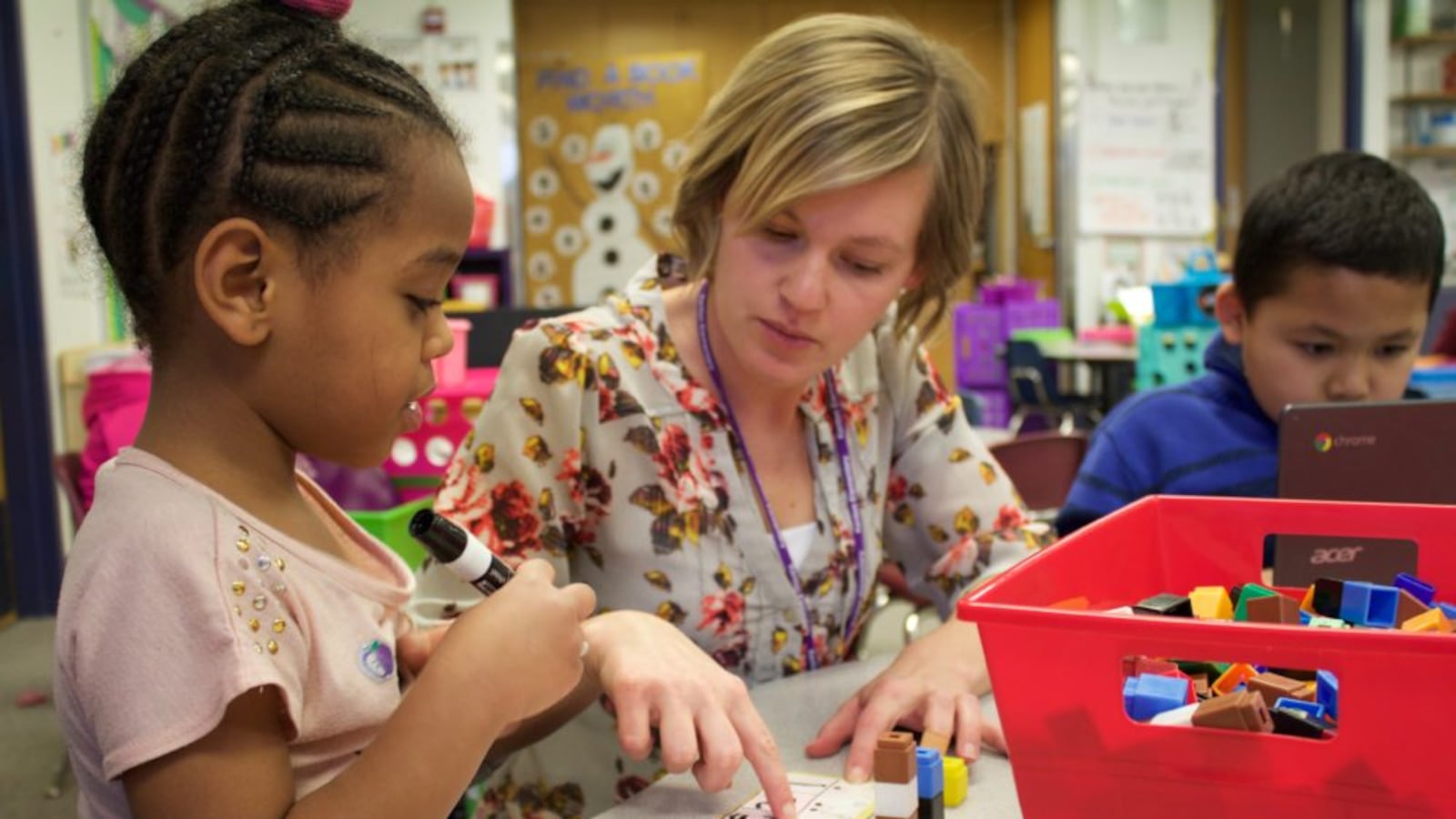Truancy might bring to mind teenagers skipping class to hang out with their friends or play video games, but in Detroit, it’s the kindergarteners teachers have to worry about.
Almost 70 percent of all kindergarteners in Detroit’s main district miss 10 days of class or more a year, five times the national average for all students.
Parents may think of kindergarten as finger painting and playing games, but missing a large number of days likely means a child will struggle in school. Experts say children who miss too many days are the least likely to be able to read at grade level later on.
“Among poor children, chronic absence in kindergarten predicts the lowest levels of educational achievement at the end of fifth grade,” a report from the National Center for Children in Poverty says.
That’s a pressing issue in Detroit, because in 2020, a new state law will force schools to hold back third-graders who can’t read at grade level.
Research on the effects of missing schools is clear: When a child misses two or more days a month — or in other words, is chronically absent — the absences hurt not only the child’s progress, but also the progress of the rest of the class.
Attendance advocates say the misconception that kindergarten is not important is a major reason parents keep their kids at home.
“Anecdotally, one of the things we hear in Detroit is that many parents of kindergartners don’t necessarily know it’s important to get their child to school every day and part of that might be that it’s not mandated in Michigan,” said Sarah Lenhoff, a Wayne State University education professor whose research is focused on attendance issues in Detroit’s main district.
An outdated idea about what happens in kindergarten is only one reason parents don’t bring their kids to school. Another is chronic health issues.
When Esmeralda Torres’ 6-year-old son Eduardo wakes up on a school morning at his home in southwest Detroit with swollen eyes and a runny nose — complications from his chronic asthma — she keeps him home.
“Usually I would take him and my other kids to school every chance I get,” she said, “But I wouldn’t feel as guilty not taking him to school in kindergarten.”
Torres’ attitude is not unusual, but kindergarten is no longer all about playtime. It’s about building a foundation for the rest of a child’s school years.
A 2016 report from the University of Virginia found that the focus of kindergarten has shifted from art, music, and free play to “literacy and math content, teacher instruction and assessment.” In national media, kindergarten has often been called “the new first grade.”
A national leader on attendance issues, Attendance Works, has been researching the issue for more than a decade. Executive Director Hedy Chang said families don’t know just how crucial early education, including kindergarten, has become. And it’s especially important for families living in poverty.
“When you’re in school, it’s allowing you to benefit from a literacy-rich, high-quality learning environment,” Chang said. “Kids in poverty are dependent on that literacy-rich environment.
“Their parents are working multiple jobs, and there’s research from multiple places that it has consequences for third-grade reading.”
Last year, only about 10 percent of third-graders in the Detroit district read at grade level. The district has doubled down on getting those scores up, but the updated instruction won’t matter if students don’t come to class.
“We have a view of kindergarten that it’s kind of a nice entry to socialization, but it’s more content and critical learning and families aren’t aware that it can have adverse consequences,” Chang said.
In Detroit, Chang said health issues like asthma are a particular challenge. The asthma hospitalization rates in the southwest Detroit area are almost triple the state average. Eduardo is part of that statistic. Usually he misses class because he is struggling with his asthma.
Even if a child is able to attend, if parents are sick or their car breaks down, there’s not much a kindergartener can do.
A recent study by two Wayne State University researchers found that school-level issues, like teacher-parent trust and discipline policies, can also play a role in whether a child’s parent brings her to school.
Despite the challenges, the issue of chronic absenteeism has been a priority for the prominent education and business leaders who’ve formed the Coalition for the Future of Detroit Schoolchildren. Members issued a list of recommendations for ways to improve Detroit schools in December.
It’s first priority is to reduce rates of chronic absenteeism by collecting more data, improving the school culture, more money for health needs like school nurses, and getting parents invested in bringing their children to school every day.
But the coalition needs the help of other groups to move their plan forward. The Brightmoor Alliance, 482Forward, Urban Neighborhoods Initiative, and the Congress of Communities banded together to form Every School Day Counts Detroit in 2015, a group at the forefront of reducing chronic absenteeism.
They are working in seven Detroit district schools to help track of attendance and inform families of the importance of attending school.
A spokesman for the main Detroit district said it recognizes the importance of attending kindergarten and has “taken an active role in sharing key messages as it pertains to being in school every day through our newly implemented PTAs, newsletters, backpack mail, and automated phone calls.”
Esmeralda Torres may not be convinced. She keeps Eduardo home because she doesn’t believe he’ll be properly cared for. In addition to her son’s asthma issues, he is hyperactive, and she thinks in a classroom of 25, the teacher can’t look after them all.
But in the long run, Chang says the best thing for kids like Eduardo is to still come to class.
“Parents don’t realize what kids are learning in the early grades and how much it’s critical to school success.”

